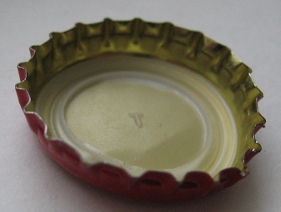NSU Newsroom
SharkBytes
Horizons
This version of NSU News has been archived as of February 28, 2019. To search through archived articles, visit nova.edu/search. To access the new version of NSU News, visit news.nova.edu.
This version of SharkBytes has been archived as of February 28, 2019. To search through archived articles, visit nova.edu/search. To access the new version of SharkBytes, visit sharkbytes.nova.edu.
Psychology Series Talk to Explore Treatments for Problem Drinking, Sept. 25
The first talk in the fall 2013 Psychology Graduate Research Series will include a discussion on the role of self-efficacy in the treatment of problem drinking. The series is co-hosted by the Farquhar College of Arts and Sciences and NSU’s Center for Psychological Studies (CPS).
Farquhar College of Arts and Sciences and NSU’s Center for Psychological Studies (CPS).
Psychology Graduate Research Series
Presentation by Sean Michael Robinson, student at CPS
Wednesday, Sept. 25
Noon–1:00 p.m.
Maltz Psychology Building | Room 2047
About the Research
Study Title: “Coping-Strategy Utilization as a Moderator of Self-Efficacy on Treatment Outcome Among Problem Drinkers”
Self-efficacy (SE) is the measure of the belief in one’s own ability to complete tasks and reach goals. The construct of SE has received broad empirical support within psychology, specifically the field of substance-use treatment. Despite the importance of SE and its use in a number of treatments, little is known about how and for whom such treatments work. One mechanism by which individuals with high SE may achieve behavioral change is through increased utilization of adaptive coping strategies. Only a handful of studies, however, have evaluated the relationship between SE and coping strategies.
Robinson’s study utilized a series of hierarchical multiple regression models to predict 12-month post-treatment drinking outcomes from SE, coping strategies, and their interaction for 163 adult problem drinkers. The results, to be shared during the talk, highlight the need for improvements in conceptualizing and/or measuring SE in alcohol-treatment studies and suggest that the importance of SE as an outcome predictor may be related to the number of coping skills participants utilize.
Robinson is working under the guidance of faculty advisers Linda Sobell, Ph.D., and Mark Sobell, Ph.D., professors and associate directors of clinical training at CPS; and Edward Simco, Ph.D., professor at CPS.
The Psychology Graduate Research Series is free and open to the public. Complimentary pizza will be served. For more information, contact Jaime Tartar, Ph.D., associate professor and coordinator of psychology research at the Farquhar College of Arts and Sciences, at (954) 262-8192.